Meta announces AI Superintelligence Lab called MSL
The elusive race for AI talent, AI Infrastructure supremacy and vague post AGI treasures. 💰👑 Home burglary at OpenAI cause them to pause on 80 hour work weeks.
Recently Mark Zuckerberg (CEO of Facebook, now called Meta) announced the creation of Meta Superintelligence Labs, which will be run by some of his company’s most recent hires. Meta poaching especially OpenAI talent is one of the most interesting things in AI in the summer of 2025 as an event, because it brings back attention to the importance of AI talent.
While Sam Altman had publically gone on a podcast of his brother downplaying the poaching blitz by Meta, that isn’t the entire story. Especially when it comes to the importance of Chinese American AI Researchers. Wired and others reported on how one remaining employee publicly broke down. “Not too many people outside the company know how talented and hardcore they are,” Cheng Lu, a member of the technical staff at OpenAI, posted on X on June 29, commenting on a post announcing that Meta’s CEO Mark Zuckerberg, or “Zuck,” had poached four elite Chinese researchers.
He continued: “Such a huge loss to OpenAI and I feel really disappointed that the leadership didn’t keep them.”
The post, which was later deleted, quickly went viral. It revealed internally how important and well-regarded some of the poached talent from Meta really is inside of OpenAI, who have been losing talent to Anthropic and Thinking Machines Lab already for quite some time.
How talented were those lost to Meta from OpenAI exactly? 🤔
In case you missed It
A lot of top AI researchers are financially set.
“A lot of the early OpenAI people have achieved financial independence already. At some point, people are seeing a $25 million offer, and they’re just like, ‘Well, after tax it’s half that.’”
So actually in the AI mercenary vs. missionary debate, it’s often foreign born immigrants who are more easily lured by a big payday like Meta has offered AI researchers.
Every single one of the 11 Meta superintelligence hires is an immigrant who did their undergrad abroad.
7 are from China, 1 India, 1 Australia, 1 UK, 1 South Africa. They are highly educated: 8 are PhD or PhD dropouts in the US.
Immigration is key to US AI innovation. 64% of the founding members of MSL are Chinese born Researchers.
The poaching episode by Meta on OpenAI still has to go down as one of the pivotal moments of the AI talent wars in early Generate AI history: the TikToker Zauey summarizes it well:
But how has OpenAI reacted internally?
What’s going to be the leadership structure at this new Meta Superintelligence Lab?
Read the entire MSL Memo.
Is the cost of AI talent going to skyrocket after the emergence of this new AI research lab?
Who exactly forms the new lab with the crazy signing bonuses?
What are the sorts of organizations where retention of AI talent is likely to be higher? Who have advantages over labs how don’t have good retention.
What will this new state-of-the-art world class AI research lab actually be working on?
Mark Chen, OpenAI's chief research officer, has sent a striking memo to staff expressing his frustration:
"I feel a visceral feeling right now, as if someone has broken into our home and stolen something"
Chen assured employees that OpenAI leadership was working "around the clock" with CEO Sam Altman to retain talent, including:
Recalibrating compensation packages
Exploring creative recognition and reward systems
Being more proactive than ever in retention efforts
It was suddenly announced that OpenAI would take a week off to recalibrate teams after the significant AI talent loss. [I found at least ten OpenAI researchers has been stolen in the home burglary on the AI startup 🦹♂️ the story is developing and that number could end up being far higher].
Meta’s Superintelligence AI Hierarchy
The new AI superintelligence project, led by execs including Scale AI ex-CEO Alexandr Wang and former GitHub CEO Nat Friedman, will house various teams working on foundation models. Daniel Gross is also joining, who used to be the CEO of SSI.
Meta confirmed earlier this month that it was buying a 49% stake in Scale AI. Meta invested nearly $15 billion in Scale AI, valuing the company at $29 billion — double its last valuation from a year ago. Peter Thiel's (his latest interview is diabolical) Founders Fund helped Scale AI reach unicorn status with a $100 million investment in 2019. In five years, Wang had grown his business to the point that he was the youngest self-made billionaire in the world. Now, he’s the CEO of Meta Superintelligence Lab at the young age of 28.
The 28-year-old Billionaire founder Wang is also joining Meta to work on the tech giant's AI efforts. He is known for his connections to Washington and his stance as a China hawk involved in National Defense efforts. Scale AI had in just May announced a bigger deal with involving Military automation. So his Meta getting involved in Military AI if it acquired Scale AI? Lucrative National defense contracts appear to be part of the allure. Scale AI is a major part of the Peter Thiel Military AI triad of companies also involving Palantir and Anduril. Meta now has links to potentially military AI contracts sometime in the future.
Mark Zuckerberg who likes fighting in the variety of MMA, might also be thinking Superintelligence could be useful against competitors like China’s ByteDance, who do a hell of a job in digital advertising (Meta’s main business), but also social commerce, GenZ entertainment and Educational technology. Using mostly Chinese (born) AI talent in this fight is at least somewhat ironic.
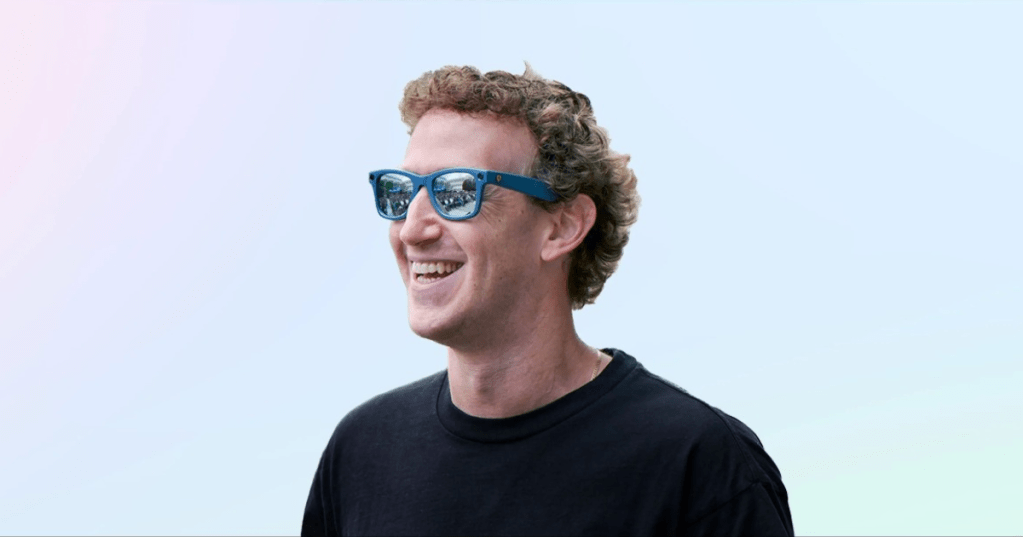
Meta retains 49% Equity in Scale AI
Scale AI has partnered with the Department of Defense to use AI agents for U.S. military planning and operations. “Thunderforge” is the DOD’s flagship program and will work with Anduril, Microsoft and others to develop and deploy AI agents.In the Trump Administration era, using AI in the Department of Defense and towards Military systems appears totally unregulated and encouraged.
Now in 2025, Meta ironically works together with Andruril. In late May it was revealed the two companies are working together to build extended reality (XR) devices for the U.S. military, Anduril announced in a blog post.
Alexandr Wang thus joins even deeper into the “AI Bro” culture of Sam Altman, Mark Zuckerberg, Palmer Luckey, Peter Thiel and other American CEOs who are using Chinese American AI talent in their war against China and China’s gaining AI capabilities. While Meta failed in their latest Llama model project, Chinese labs have made incredible open-source AI progress in the last year. Zuckerberg has been on an AI hiring blitz as he faces fierce competition from rivals such as OpenAI and Google, but don’t let that fool you.
Military AI contracts keep getting bigger. Meta and Anduril are partners on the Soldier Borne Mission Command (SBMC) Next program, formerly called the Integrated Visual Augmentation System (IVAS) Next. IVAS was a massive military contract, with a total $22 billion budget, originally awarded to Microsoft in 2018 intended to develop HoloLens-like AR glasses for soldiers. This new Superintelligence lab could be more about Military AI projects at some point in the future.
Who did he Manage to Poach in that AI Tycoon Envy?
Sad to give Mark Zuckerberg credit but some of the AI researchers, scientists and applied engineers he managed to get are have been criminally undervalued (underestimated in the coverage) in the media reports and by in particular, the main loser in this scenario, Sam Altman. Ironically many of them are Chinese born talent. This all coincides with Peter Thiel’s Antichrist interview, showing you that transhumanism might be behind some of the China hawk stance of Silicon Valley now working on Military AI projects.
Zuckerberg’s crazy AI blitz stems from envy and FOMO it appears, as Zuckerberg has “grown frustrated” that rivals like OpenAI appear to be further ahead than Meta in underlying AI models and consumer-facing apps, current and former Meta employees said. Meta’s execution in LLMs has been extremely underwhelming for more than the past year. So should Google, OpenAI and Anthropic be worried about the talent pool Meta has managed to assemble for this lab? It’s better than many know.
Mark Zuckerberg reportedly spent months putting together a list of the top AI engineers and researchers across the globe, preparing to offer potential recruits lucrative compensation packages in Meta’s attempt to poach AI talent from key competitors.
Days after OpenAI’s chief researcher likened Meta’s aggressive poaching to a home burglary, the social media giant has released a list of names and bios of recently hired employees who previously held roles at OpenAI, Anthropic, and Google DeepMind. Meanwhile BigTech Hyperscale operators are expected to account for 61 percent of all datacenter capacity by 2030. The AI bros will be taking up a lot of energy and power of our grids to power their AI Supremacy dreams.
Zuckerberg announced the formation of Meta Superintelligence Labs (MSL), a new group that will house all of Meta’s AI efforts, including its foundational model development, products, and research.
Meta has nabbed several big names: Lucas Beyer, Alexander Kolesnikov, Xiaohua Zhai (formerly OpenAI), and others like Trapit Bansal and Jack Rae, who left Google DeepMind. The company also reportedly tried (and failed) to lure high-profile AI researchers like OpenAI’s Noam Brown and Google’s Koray Kavukcuoglu.
The AI Chinese American researchers poached from OpenAI are higher level than Sam Altman and OpenAI let on originally and there may be more to come. These are the founding members of MSL:
The Big Five from OpenAI
The American internet doesn’t give Chinese AI Researchers much credit, if any at all. But people within OpenAI and the industry know the truth:
Suchao Bi
Hongyu Ren
Jiahui Yu
Shengjai Zhao
Ji Lin
When Jensen Huang says China has 50% of the AI Researchers in the world, he’s likely under appreciating the talent pool of Chinese born AI Researchers. Huang stressed the importance of understanding competitive advantages in the AI race, noting that “50% of the world’s AI researchers are Chinese” — a factor he says must “play into how we think about the game.” Of course it wouldn’t be politically correct for him to say the reality, that’s it’s far greater than that 50% figure that outraged China hawks.
Although if you read top AI papers like I do, you’ll notice the percentage of frontier work with Chinese researchers as the leading authors of the papers is far higher than a mere 50 percent. You’ll also notice that while all these AI bros are mostly white dudes in the C-suite, there’s hardly any white American dudes among the actual top AI Researchers building AGI or Superintelligence. Sam Altman downplaying their loss was incredible to behold. Sort of the racism you’d expect from someone coached/groomed by Peter Thiel.
While OpenAI did try to “match offers”, it seems they were unable to prevent the “AI burglary” that took place.
I like the article by Kylie Robinson at Wired, who as their subscriptions fade tried to poke Substack recently, because it illustrates actually how far Mark Zuckerberg’s “Raid” on AI talent of research labs worked in terms of offering lucrative cash bonuses and how financial leverage (AI compute is of course exceedingly costly) factors in to all of this AI bro culture stuff.
“After a poaching frenzy that’s brought in talent from rival firms like OpenAI, Anthropic, and Google, Zuckerberg announced a team of nearly two dozen researchers in an internal memo.”
Meta also hired Nat Friedman and his business partner, Daniel Gross, who was CEO of Safe Superintelligence, the AI startup created by OpenAI co-founder Ilya Sutskever. These were among the legendary “Angel investors” in the Generative AI scene of the last few years. The fact that Zuck got the CEO of SSI is itself fairly amazing, as SSI and Thinking Machines Lab rejected his overtures before he practically acquired Scale AI and poached their founder for fairly political reasons I surmise.
So a lot of the Executives in AI look like Peter Thiel, but the best minds are actually and often Chinese born Americans doing the actual work. America the great right? Scale AI is famous for and uses and exploits foreign talent to do the laborious job of data labeling. Probably something Mark Zuckerberg could wrap his head around, even though the stake he acquired in the company was practically double its actual private market valuation at the time.
Offering four-year total pay package worth about $100 million for a very senior leader is not inconceivable for Meta. Nor is throwing money at a problem. The bonus to Alexandr Wang for signing on must be astronomical with the cash dividend. Easily a few hundred million.
That Sam Altman was advised by his Comms and PR team to talk about OpenAI’s mission in defense of the OpenAI AI Burglary event is itself so cringe. OpenAI who have betrayed their own mission and original charter more times than we can count. It not only made Sam Altman look racist and unprepared for the AI poaching event, but extremely insincere. More on Making Fun of Them with Ed Zitron.
Pedigree of Meta Superintelligence Labs (MSL)
Meta’s MSL thus with Zuck, Wang and Gross have brought in (* bought) a superstar cast of AI Bros to lead a bunch of mostly foreign born AI talent.
Let’s read the memo that was sent to Staff:
The Zuckerberg Internal MSL Memo:
Here is Zuckerberg’s full internal memo released Monday (source: CNBC):
As the pace of AI progress accelerates, developing superintelligence is coming into sight. I believe this will be the beginning of a new era for humanity, and I am fully committed to doing what it takes for Meta to lead the way. Today I want to share some details about how we’re organizing our AI efforts to build towards our vision: personal superintelligence for everyone.
We’re going to call our overall organization Meta Superintelligence Labs (MSL). This includes all of our foundations, product, and FAIR teams, as well as a new lab focused on developing the next generation of our models.
Alexandr Wang has joined Meta to serve as our Chief AI Officer and lead MSL. Alex and I have worked together for several years, and I consider him to be the most impressive founder of his generation. He has a clear sense of the historic importance of superintelligence, and as co-founder and CEO he built ScaleAI into a fast-growing company involved in the development of almost all leading models across the industry.
Nat Friedman has also joined Meta to partner with Alex to lead MSL, heading our work on AI products and applied research. Nat will work with Connor to define his role going forward. He ran GitHub at Microsoft, and most recently has run one of the leading AI investment firms. Nat has served on our Meta Advisory Group for the last year, so he already has a good sense of our roadmap and what we need to do.
We also have several strong new team members joining today or who have joined in the past few weeks that I’m excited to share as well:
Trapit Bansal -- pioneered RL on chain of thought and co-creator of o-series models at OpenAI.
Shuchao Bi -- co-creator of GPT-4o voice mode and o4-mini. Previously led multimodal post-training at OpenAI.
Huiwen Chang -- co-creator of GPT-4o’s image generation, and previously invented MaskGIT and Muse text-to-image architectures at Google Research
Ji Lin -- helped build o3/o4-mini, GPT-4o, GPT-4.1, GPT-4.5, 4o-imagegen, and Operator reasoning stack.
Joel Pobar -- inference at Anthropic. Previously at Meta for 11 years on HHVM, Hack, Flow, Redex, performance tooling, and machine learning.
Jack Rae -- pre-training tech lead for Gemini and reasoning for Gemini 2.5. Led Gopher and Chinchilla early LLM efforts at DeepMind.
Hongyu Ren -- co-creator of GPT-4o, 4o-mini, o1-mini, o3-mini, o3 and o4-mini. Previously leading a group for post-training at OpenAI.
Johan Schalkwyk -- former Google Fellow, early contributor to Sesame, and technical lead for Maya.
Pei Sun -- post-training, coding, and reasoning for Gemini at Google Deepmind. Previously created the last two generations of Waymo’s perception models.
Jiahui Yu -- co-creator of o3, o4-mini, GPT-4.1 and GPT-4o. Previously led the perception team at OpenAI, and co-led multimodal at Gemini.
Shengjia Zhao -- co-creator of ChatGPT, GPT-4, all mini models, 4.1 and o3. Previously led synthetic data at OpenAI.
I’m excited about the progress we have planned for Llama 4.1 and 4.2. These models power Meta AI, which is used by more than 1 billion monthly actives across our apps and an increasing number of agents across Meta that help improve our products and technology. We’re committed to continuing to build out these models.
In parallel, we’re going to start research on our next generation of models to get to the frontier in the next year or so. I’ve spent the past few months meeting top folks across Meta, other AI labs, and promising startups to put together the founding group for this small talent-dense effort. We’re still forming this group and we’ll ask several people across the AI org to join this lab as well.
Meta is uniquely positioned to deliver superintelligence to the world. We have a strong business that supports building out significantly more compute than smaller labs. We have deeper experience building and growing products that reach billions of people. We are pioneering and leading the AI glasses and wearables category that is growing very quickly. And our company structure allows us to move with vastly greater conviction and boldness. I’m optimistic that this new influx of talent and parallel approach to model development will set us up to deliver on the promise of personal superintelligence for everyone.
We have even more great people at all levels joining this effort in the coming weeks, so stay tuned. I’m excited to dive in and get to work.
"I feel a visceral feeling right now, as if someone has broken into our home and stolen something," Chief Research Officer Mark Chen wrote in a Saturday Slack memo obtained by Wired magazine.
Zuckerberg called Alexandr Wang, “the most impressive founder of his generation.” A guy who “fired” his own co-founder its earliest days, Lucy Gao who does the most crazy PR I’ve ever seen flaunting her influence and wealth in bizarre PR articles about herself. She retained some equity when she was fired for internal differences at Scale AI.
Meta has always been a revolving door for AI talent. That’s even more proundcd during the Generative AI era of LLMs. Meta really did mess up their lats Llama model, ceding Open-source AI leadership to Chinese firms including DeepSeek, Qwen, Baidu and others. At Meta, the Fundamental Artificial Intelligence Research unit (FAIR) has been deprioritized in favor of Meta GenAI, according to former employees. But Meta GenAI now is upstaged by MSL.
So I’m actually impressed by the calibre of the MSL roster (go to the end for more on this). As if AI Superintelligence was like a basketball team you could assemble simply because you are a wealthy owner. The restructured group will also include a star roster of recent hires poached from top AI labs, including OpenAI, Google DeepMind, and Anthropic. Among them are Jack Rae, former pre-training tech lead for Google’s Gemini; Shuchao Bi, co-creator of GPT-4o voice mode; and Pei Sun, who built perception models for Waymo before working on Gemini at DeepMind.
The researchers expressed their “gratitude” for the rise in pay as well:
MSL sounds like a lucrative place to work at, OpenAI teams supposedly work 80 hour weeks to get to that AGI benchmark before everyone else! As if that were going to be a material advantage.
“The catalyst for this apparent crisis is Meta. While OpenAI engineers are tweeting like they’ve lost loved ones, Zuckerberg is reportedly assembling a new elite AI team.” - Gizmodo
Altman just got Zuck-Ed
Tycoon capitalism it appears, is also all about minimizing the role of Chinese AI researchers in the war against China in AI, if we take Sam Altman’s conduct around this episode as any fair indication. For you know, the race to AI supremacy. The state of Silicon Valley over datacenters and AI talent just upped the ante shelling out Billions (on AI Infrastructure) and Millions (on AI Talent) as if it’s all going to be worth it.
Is it going to be worth it? Meta is also planning to “start research on our next generation of models to get to the frontier in the next year or so,” Zuckerberg said in the memo. See you in 2026 AI Bros. Can’t wait to see if your models can reclaim the Open-source AI throne from China, with the help of Chinese researchers you down play when they get poached and traded (for a fee) like hockey cards.
OpenAI Researchers seem Vulnerable to Poaching as Retention rates of their Talent declines in 2025
I know Zuckerberg likes MMA, but the war on AI talent just got a bit out of control. U.S. AI researchers are working Chinese “996” like hours - Reports from within the industry describe grueling, 80-hour workweeks as the baseline for researchers at top AI labs. The poaching showed that AI researchers at OpenAI are much more vulnerable to leaving than Anthropic or even Google DeepMind, which we knew from a recent survey.
Thus Mark Zuckerberg and Meta’s MSL are spending billions to recruit top artificial intelligence talent, triggering debates about whether the aggressive hiring spree will pay off in the competitive generative AI race. But they are actually also competing with the likes of Elon Musk’s xAI and Thinking Machines Labs that just got the highest $2 Billion seed round in tech history.
The new Big Six in Generative AI in the United States
OpenAI
Google DeepMind (GDM)
Anthropic
xAI
Meta Super Intelligence Lab (MSL)
Thinking Machines Lab (TML)
While Amazon and Google funds Anthropic, it’s not clear to me how teams outside of these top firms can compete due to the funding requirements for both AI Infrastructure and AI talent, such as SSI, Mistral over in Europe or Cohere over in Canada.
MSL’s tactics included supposed $100 million signing bonuses. The Big five Chinese researchers at OpenAI had no particular loyalty to Sam Altman and his twisted ideology around “AGI” it appears and historical manipulation over his own co-founders, the OpenAI board and his Venture Capital deals using the name OpenAI Startup fund for his own personal ventures. What previous deals did he have with Peter Thiel in how he managed OpenAI to become a National Defense player in military AI?
In early June, 2025 Anthropic also announced Claude Gov, its product designed specifically for U.S. defense and intelligence agencies. We can only assume this means the Big Six will all be working on National Defense and against China in some capacity as the Trump Administration is full of “China hawks” of the Peter Thiel variety who follow Venture Capital incentives to profit from geopolitical trends commercially and financially.
Meta faces Antitrust Scrutiny and ups Lobbying Trump Admin
Analysts have pointed out that Mark Zuckerberg has worked hard to lobby the Trump Administration so that antitrust activities against Meta will not come to fruition. The case is the first Big Tech versus competition authorities battle to take place under the Trump administration. More than a decade ago, Meta - called Facebook at the time - purchased Instagram in 2012 for $1 billion (€880 million) and WhatsApp in 2014 for $19 billion (€16 billion). They have developed into one of the most toxic digital Advertising monopolies that have hurt consumers materially. While Mark Zuckerberg has spent nearly $50 Billion on Metaverse R&D now he must do more than that to pursue AI to keep his company relevant.
According to a recent report by SignalFire, Anthropic has become a major destination for talent departing OpenAI and DeepMind. Given Meta’s poor history in LLM execution or retaining talent, it’s a toxic place to work at that might appeal more to Chinese AI researchers with world classes work ethics and the ability to endure the 996 lifestyle more favorably. Meanwhile, the biggest lure in the space will be to Mira Murati’s Thinking Machines Lab that has the highest concentration of former OpenAI and Anthropic employees. It’s not clear how Elon Musk competes with these other emerging research labs, given the breakdown of his own reputation.
While OpenAI talks about AGI, it’s not entirely clear what Meta means referring to Superintelligent AI. Where Meta is mostly interested in automating Ads, and other product enhancements to strengths its already monopolistic hold on digital Advertising including an AI stand alone app that is highly controversial. Given the known moral baseline and ethics of characters like Altman, Musk and Zuckerberg - it’s difficult seeing any of them winning the race. AI researchers want to work in a meaningful way with top talent in cultures considered pioneering.
Meta’s MSL is not immediately expected to be such a community of researchers. Meanwhile Anthropic is showing very high revenue growth in its trajectory in 2025 and in the dominance of Claude Code and the capabilities of Anthropic’s Claude models around software engineering, Agentic AI that is related to top tier models in AI coding.
According to Laila Shaban via Azeem Azhar:
What's driving the shift:
→ Flat organizational structures over traditional hierarchies
→ Minimal bureaucracy that lets researchers actually research
→ Support for independent work rather than rigid project mandates
→ Autonomy over process and direction
You will notice Nvidia also has a very high rate of Chinese American (mostly) and Taiwanese American employees for example related to its robotics research. Jensen Huang is known for running Nvidia with a more “flat organizational” structures than traditional BigTech companies. While Meta, Google and Microsoft have tried to do layoffs and flatten their org structure, they cannot imidate it because they are fundamentally “low-trust” employers.
Relationship between Culture and AI Retention? 🤔
OpenAI and Meta ranks among the lowest in AI retention according to the report. Nearly 80% of people who joined Anthropic two years ago still worked there, which is relatively rare in AI, where job-hopping is common. DeepMind isn’t far behind at 78%. OpenAI’s retention is lower at 67%, followed by Meta’s 64%.
Anthropic, 80% retention after two years.
DeepMind, 78%.
OpenAI, 67% (now lower after the Meta burglary event of June/July).
Meta, just 64%.
Mercenary Corporate vs. Pure Research Lab approaches.
"There are some extreme downsides to going pure mercenary... and being a company with products no one wants to work on…" - Zvi Mowshowitz
Are Anthropic & Thinking Machines Lab Different?
This is why I view Mira Murati at Thinking Machines Lab as capable of developing a more positive and healthy culture for innovation someone like Sam Altman is wouldn’t be capable of doing stylistically or leadership wise. Obviously not Zuck or Wang either.
My thesis is that real innovation can take place in such labs due to their different environment of leadership and more pure-play approaches to both AI alignment and being AI research labs. Obviously they still need to monetize and work on product, but with the added experience from the OpenAI saga where most of them used to originally work. AI products but not to the detriment of everything else. If I had to guess, Meta’s MSL resembles more xAI or OpenAI’s culture of growth at all costs. In such a scenario, does capital or talent win? Is compute scaling alone enough? The incentives at Meta are very scattered, to have a high probability of succeeding in next-gen models and emergent capabilities.
One thing remains for sure, the competition between these six frontier research labs and Chinese labs and startups in AI will allow for some innovation to occur hopefully in AI for the coming years that does benefit civilization and people all over the world.
The Meta MSL Lineup: Digging into AI Researchers Extended
I want to also dig a bit deeper than most publications go into these founding eleven AI Researchers and machine learning scientists.
Trapit Bansal: pioneered RL on chain of thought and cocreator of o-series models at OpenAl. Bansal graduated from the Indian Institute of Technology (IIT) Kanpur in 2012, earning both bachelor's and master's degrees in mathematics and statistics. Bansal joined OpenAI in January 2022 as a member of the technical staff. He played a pivotal role in developing OpenAI’s first major AI reasoning model, known as o1, and was a foundational contributor to reinforcement learning research, working closely with co-founder Ilya Sutskever. He’s considered an important AI Researcher for MSL.
Shuchao Bi: cocreator of GPT-4o voice mode and o4-mini. Previously led multimodal post-training at OpenAl. He is notably recognized as a co-founder of YouTube Shorts, having led the algorithm and discovery teams for the product during his 11-year tenure at Google, where he also served as Director of Engineering. At MSL it appears he is focusing on RL/post-training/agents.
Huiwen Chang: cocreator of GPT-4o's image generation, and previously invented MaskIT and Muse text-to-image architectures at Google Research. Her academic background includes a PhD from Princeton University, where she was advised by Adam Finkelstein, and a Bachelor’s degree in computer science from Tsinghua University. Her research contributions are significant in the fields of deep learning and generative models, with highly cited works on image-to-image diffusion models, text-based real image editing, and masked generative transformers.
Ji Lin: helped build 03/o4-mini, GPT-4o, GPT-4.1, GPT-4.5, 40-imagegen, and Operator reasoning stack. Ji Lin's work has had significant impact, with over 10,000 citations on Google Scholar and widespread industry adoption. His research specializes in efficient deep learning computing, machine learning systems, and accelerating large language models (LLMs). He is also a pioneer in the field of TinyML, which focuses on deploying machine learning models on resource-constrained devices.
Joel Pobar: inference at Anthropic. Previously at Meta for 11 years on HHVM, Hack, Flow, Redex, performance tooling, and machine learning. Recently, Joel joined TEN13, a venture capital firm focused on AI innovation, as their inaugural Venture Partner. He is recognized for his contributions to the AI startup ecosystem and is actively engaged in discussions about the future of AI, including the state and potential of large language models.
Jack Rae: pre-training tech lead for Gemini and reasoning for Gemini 2.5. Led Gopher and Chinchilla early LLM efforts at DeepMind. Jack Rae's research focuses on advancing AI's reasoning capabilities, long context understanding, and scaling inference time, contributing significantly to projects like Google's Gemini 2.5 model, which aims to improve AI thinking and reasoning. He is recognized as one of the leading minds behind Gemini’s Flash Thinkin.
Hongyu Ren: cocreator of GPT-4o, 4o-mini, o1-mini, o3-mini, 03 and o4-mini. Previously leading a group for post-training at OpenAl. He earned his Ph.D. in Computer Science from Stanford University, focusing on large language models, and holds a B.S. with honors in Computer Science from Peking University. At OpenAI, Hongyu Ren contributed significantly to the development and post-training of advanced AI models, including the o3-mini and o4-mini models, as well as an open-source model slated for release in 2025. His work centers on improving how AI systems understand, reason, and apply knowledge to complex tasks, which is crucial for enhancing tools like ChatGPT.
Johan Schalkwyk: former Google Fellow, early contributor to Sesame, and technical lead for Maya. He is a highly regarded AI expert known for his pioneering work in speech technology and large language models. He was a Google Fellow who played a crucial role in developing Google's voice search technology, including launching the world's first voice-enabled search experience, Google Voice Search, in 2008. At Google DeepMind, Schalkwyk contributed to multimodal perception and large language model development, guiding strategic research investments in speech technologies. He is a leading figure in AI, especially in speech recognition, large language models, and multimodal AI.
Pei Sun: post-training, coding, and reasoning for Gemini at Google Deepmind. Previously created the last two generations of Waymo's perception models. At Google DeepMind, Pei Sun contributes to advancing AI capabilities, including work related to foundational models like Google's Gemini, focusing on adapting and integrating these models for real-world applications, such as mobile AI experiences on Android devices.
.
Jiahui Yu: cocreator of 03, 04-mini, GPT-4.1 and GPT-4o. Previously led the perception team at OpenAl, and co-led multimodal at Gemini. He has a strong background in deep learning, high-performance computing, and multimodal AI models. Previously, he co-led the Gemini Multimodal project at Google DeepMind and has contributed extensively to research in computer vision, speech recognition, and generative models.
Shengjia Zhao: cocreator of ChatGPT, GPT-4, all mini models, 4.1 and 03. Previously led synthetic data at OpenAl. He is a prominent AI research scientist known for his expertise in training large deep learning models. He was a PhD candidate at Stanford University from 2016 to 2022 under advisor Stefano Ermon and joined OpenAI as a research scientist in June 2022, contributing notably to the development of GPT-4 and other advanced AI models.
Meta has poached at least Ten OpenAI Experts in AI in the Summer of 2025
The eleven mentioned by Wang to introduce MSL does not include other recent Meta hires in AI like Lucas Beyer, Alexander Kolesnikov and Xiaohua Zhai also from OpenAI. This means Meta poached at least ten AI researchers and experts from OpenAI just in the last few weeks.
Lucas Beyer: is a prominent AI researcher specializing in deep representation learning, computer vision, and robotic perception. His research contributions include state-of-the-art work on ImageNet classification, person detection, and innovations in language-image pre-training such as the SigLIP loss function, which improves the scalability and performance of vision-language models.
Alexander Kolenikov: is a prominent machine learning researcher specializing in deep learning and multimodal intelligence, with a strong background in computer vision and representation learning. Alexander Kolesnikov is a leading AI researcher with deep expertise in machine learning, computer vision, and multimodal intelligence, whose career spans top-tier institutions and companies such as Yandex, Google DeepMind, OpenAI, and now Meta.
Xiaohua Zhai: is a prominent AI researcher known for his work in large-scale visual representation learning, multimodal learning, and self-supervised learning. He earned his PhD from Peking University. In February 2025, he joined OpenAI as a Member of Technical Staff in their Zurich office, where he led a multimodal research group focused on multimodal data and open-weight models.
Prospects of MSL
Given how far ahead Qwen, DeepSeek and others in China are in open-source large language models it’s not overly clear what the new research lab at Meta will be working on. To call it a “Superintelligence” lab is a bit of a stretch. Meta has shown an interest in developing both Enterprise AI products and world models for the future of robotics.
For Meta to have poached ten OpenAI researchers and some from Google Deepmind and Anthropic indicates a significant capex for AI talent while Zuckerberg has been building considerable AI Infrastructure prowess and energy partnerships. Meta has recently signed four deals to supply 791 megawatts (MW) more of solar and wind power to operate data centers. Both Microsoft and Amazon have renewed their internal AI labs as well, attempting to keep up with the frontier labs.
Given the memo and public announcements broadly speaking: Meta's Superintelligence Labs is designed to deliver "personal superintelligence for everyone" - though this remains a somewhat vague but ambitious goal to make advanced AI accessible to everyone.
Primarily in 2025 they will be focused on foundational LLMs, reasoning models with multi-modal capabilities.
Product Integration at Meta
Integration with Meta AI across all Meta platforms
Development of AI agents to improve Meta's products and technology
Smart Glasses and wearables integration - positioning Meta as a leader in AI-powered wearable technology.
Improving the capabilities of Automated digital Ads
Well before Meta approaches any capabilities resembling Superintelligent AI, they have a lot of work to do.
Wang is the CEO of MSL.
While Nat Friedman (former Github CEO) will lead the product side.
This will include a new specialized lab for next-generation model development. (NGMD). Meta is positioning MSL and Zuckerberg is hoping to compete directly with frontier labs like DeepMind, OpenAI and Anthropic. Though it’s not clear if even that is a realistic goal. xAI just announced $10 Billion more in funding, split evenly between equity and debt. Any kind of AGI or General Superintelligence is likely beyond the scope of what Meta is actually capable of accomplishing.
Meta is a digital advertising empire and not known for his ability to retain top AI talent. We all get that Meta is scared to be left behind, but is poaching and building datacenters frantically even the right approach? Meta’s stock recently hit yearly highs. Shared closed on June 30th, at a record $738.09, marking a 23% year-to-date gain which is a market cap of about $1.8 Trillion.
Can a digital Ads player win in AI? (not a likely scenario)
While Meta has positioned the Meta Superintelligence Lab as a new internal R&D division devoted to building artificial superintelligence, it’s going to be stretched pretty thin on far too many objectives as it currently stands in 2025.
"As the pace of AI progress accelerates, developing superintelligence is coming into sight," Zuckerberg wrote in the memo. "I believe this will be the beginning of a new era for humanity, and I am fully committed to doing what it takes for Meta to lead the way."
It’s not clear how Mark Zuckerberg has benefited humanity nor of his ability to do so with in the future with AI. Meta is part of the digital advertising duopoly that has ruled Silicon Valley for more than a decade along with Google, that leads in search advertising and YouTube. Meta recently announced Ads will be coming to WhatsApp.
Meta’s entry into the frontier research lab area was made more dramatic by the loss of talent at OpenAI and Sam Altman’s denial. In reality Microsoft, Amazon and others are trying as hard to keep up with the likes of Google DeepMind. The competition for AI talent is nearly as crucial to AI’s evolution as the limitations of scaling laws discovered in 2024 and the AI Infrastructure roll out I coined as the Great Datacenter Boom which is costing BigTech and hyperscalers hundreds of Billions of dollars each year and has created a generational opportunity for the likes of Nvidia in AI chips and their suppliers, like TSMC.
Meta is not expected to even with the starting MSL team be able to catch-up to the bleeding edge, nevermind xAI, DeepSeek, Alibaba Qwen or Thinking Machines Lab, who it is believed have way superior AI talent. In general, Meta has failed to keep up in AI since 2023.
Like Facebook’s outrageous R&D costs of Metaverse products (at least $45 billion by now), it’s hard to justify the expense of such Mercenary AI labs as Meta’s Superintelligence Lab (MSL) unit. Of course, this is only my opinion and I could be wrong. Given recent papers and milestones, I consider Meta’s Chinese rival, ByteDance, to be superior in AI research as compared with Meta inspite of having a smaller R&D and AI datacenter budget. And finally wow will this lab work on emergent capabilities if there are so many products related to Meta to work on?
This is the biggest challenge of Mark Zuckerberg’s professional life. How to prevent Meta from falling behind in Generative AI? Even with all the money in the world and using mercenary tactics to steal talent from fabled labs like OpenAI, it won’t be easy. This is business but not all hyperscalers are created equally.
Addendum Update Late July, 2025
According to internal leaks from Meta employees about Meta Superintelligence Lab, here is a preliminary list of 44 AI researchers Meta has managed to obtain, mostly poach from other labs.
40% are from OpenAI
50% are Chinese born - Source.
75 percent of them being PhDs, while 70 percent of them comprise of researchers.
Most are from OpenAI, Google Deepmind and Scale AI (via acquire-hire)
This has made many of us realize that OpenAI is in fact no longer seen as mission-driven much at all.
Many of the VPs are former Angel investors in AI who were previously entrepreneurs. Way more Chinese AI talent than American make up Meta Superintelligence Lab. The researchers often signaled in negotiations with Zuckerberg that they wanted a high GPU to researcher ratio. Meta might be able to afford a decent ratio for some of them with lucrative signing bonuses.
The notable exception of sources of talent is actually Anthropic. This leads us to believe that Anthropic and Thinking Machines Lab, and SSI to a lesser extent are the leaders in AI researchers having any sense of a Mission or higher purpose in the science.
More Researchers from OpenAI
In mid July it was announced by Wired: Jason Wei, who worked on OpenAI’s o3 and deep research models, will be joining Meta’s superintelligence lab. His colleague Hyung Won Chung is also joining Meta, a source told WIRED.
The low hanging fruit for Meta seemed to be immigrants of Chinese origin who might have more of a mercenary mind-set. i.e. they want status, fame, more GPUs, etc… (not just more money). Meta can certainly provide bigger bonuses and promises of more GPUs.




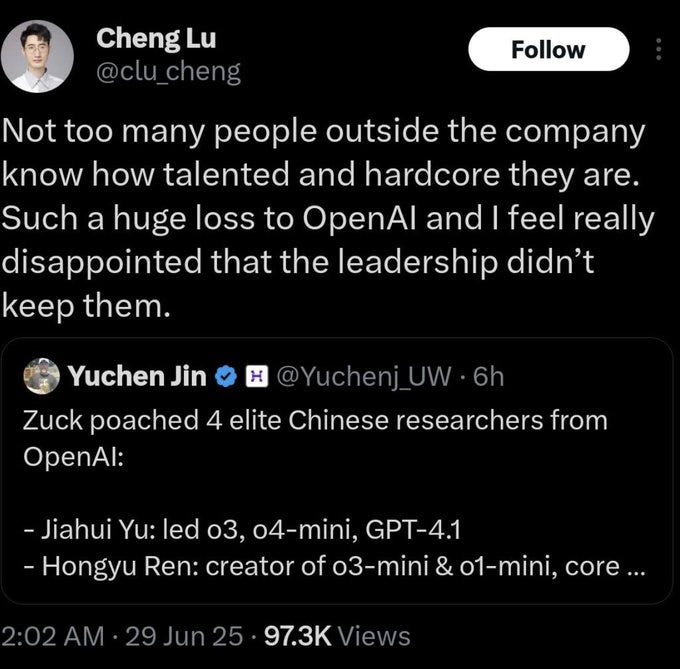



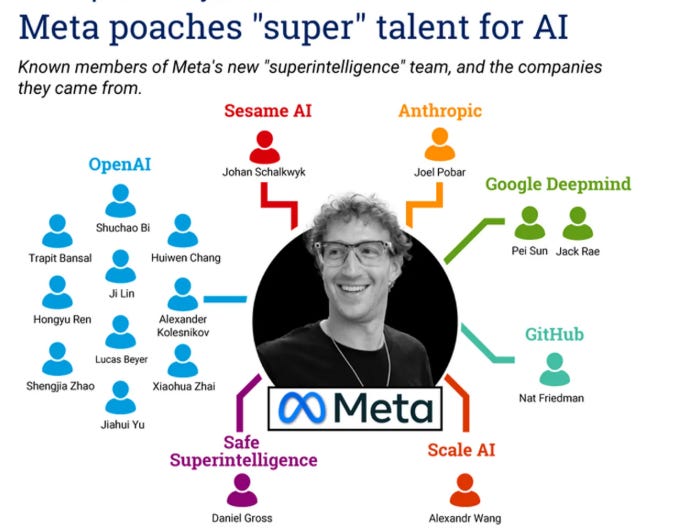
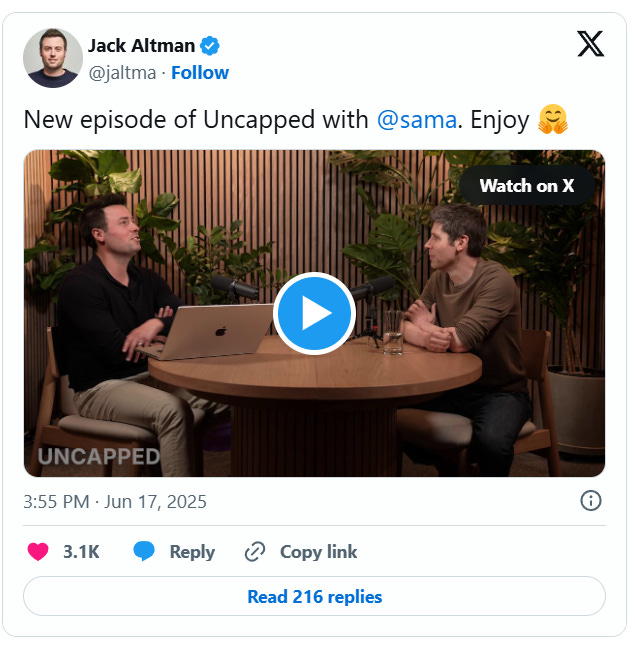
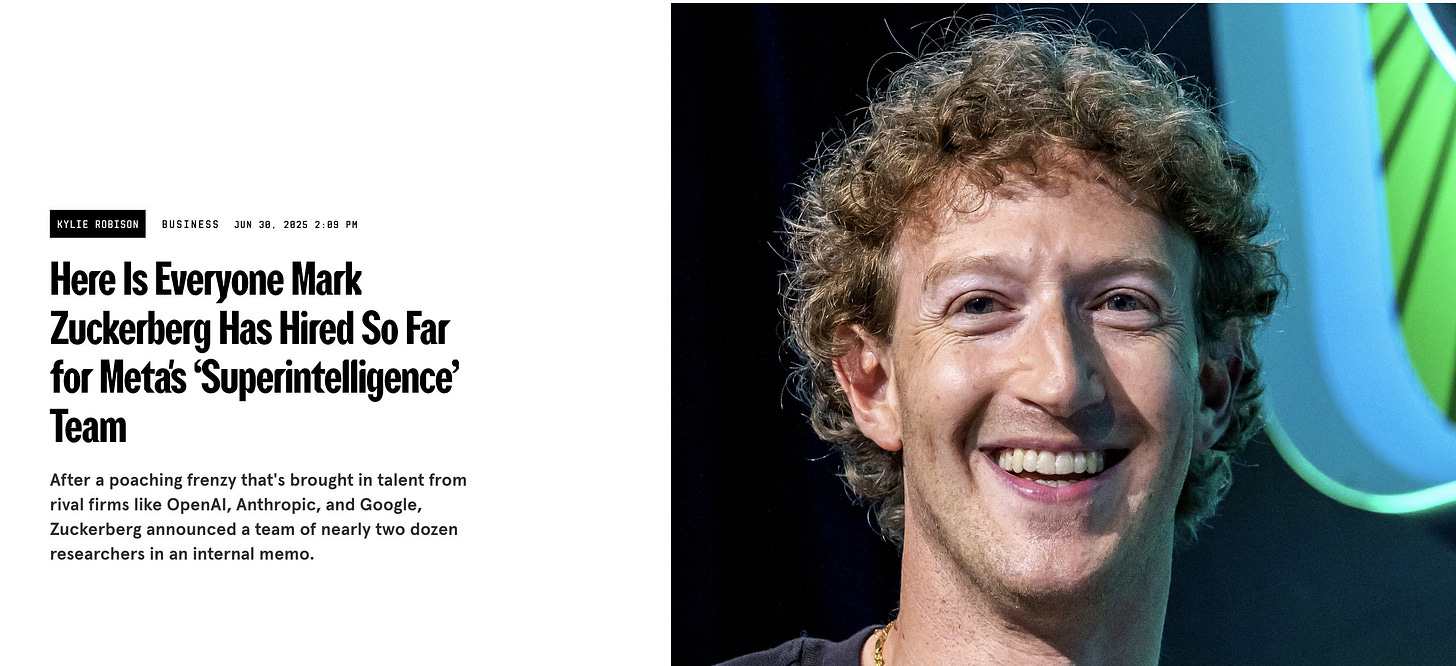
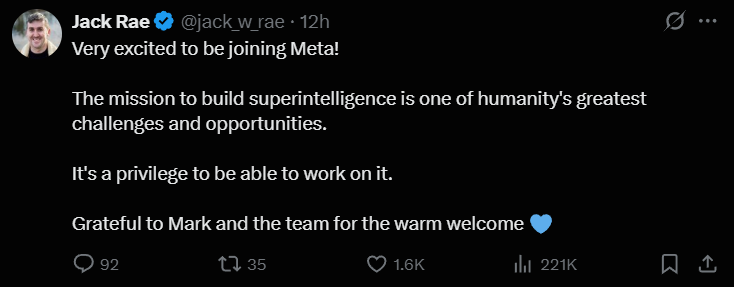

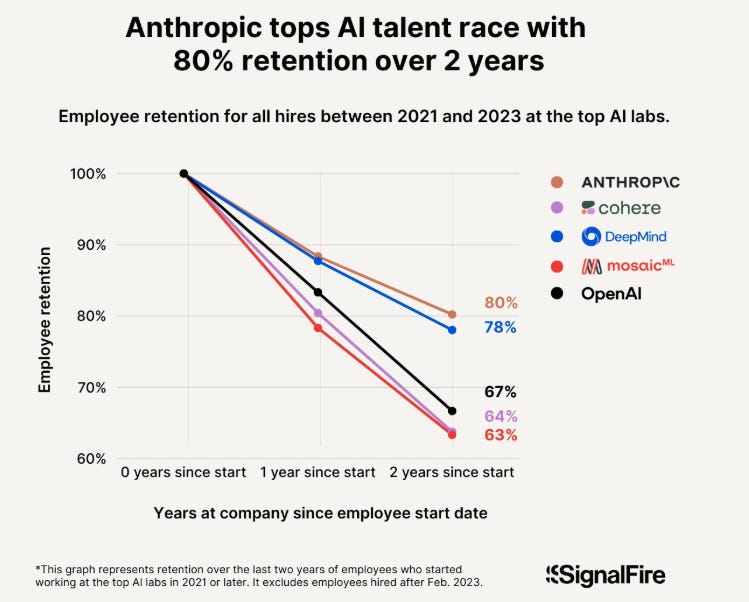
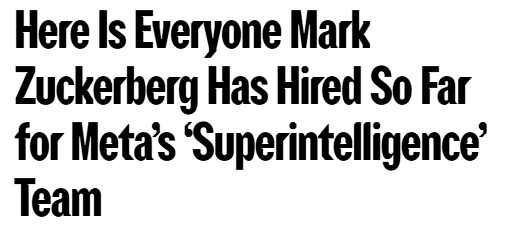
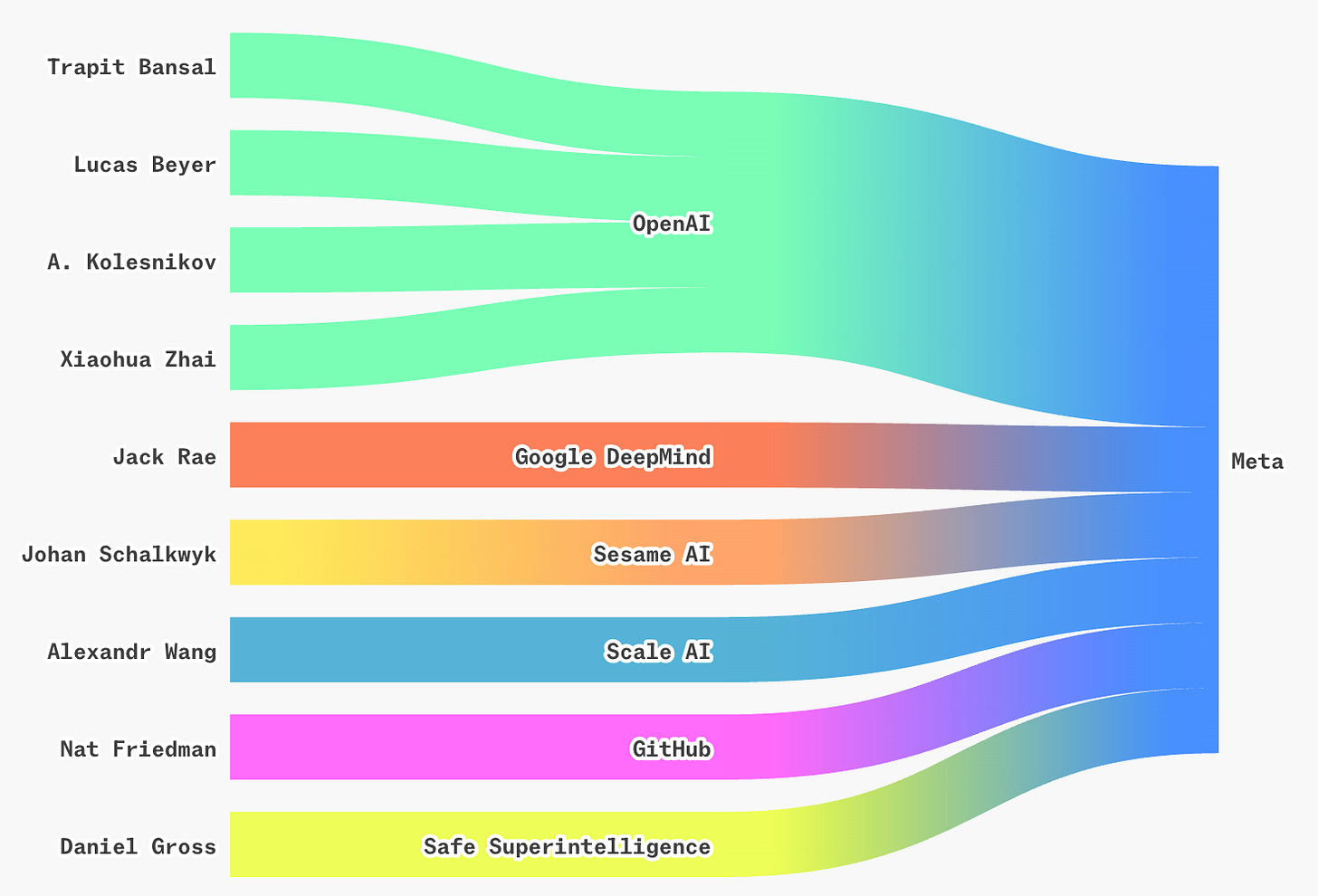


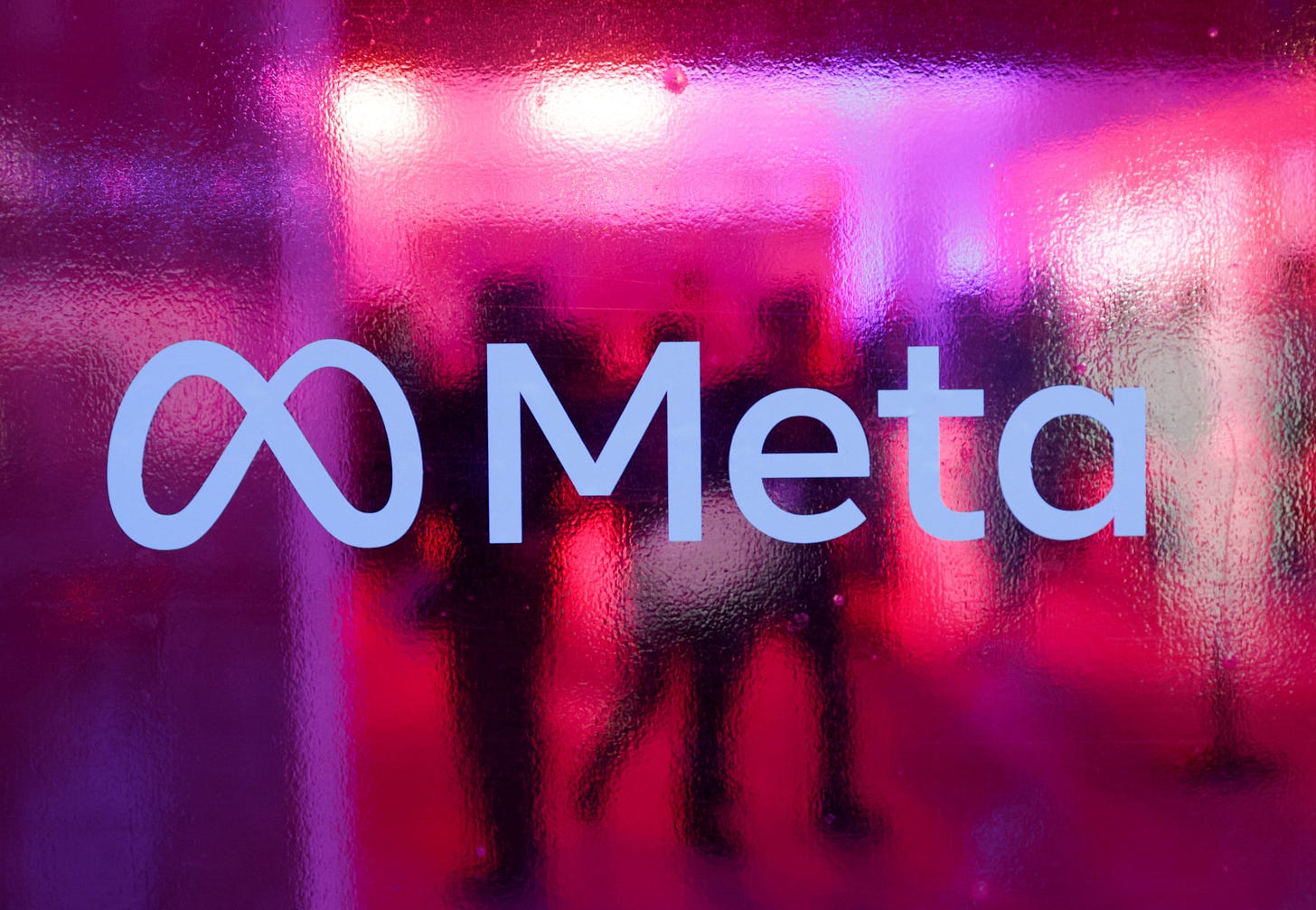
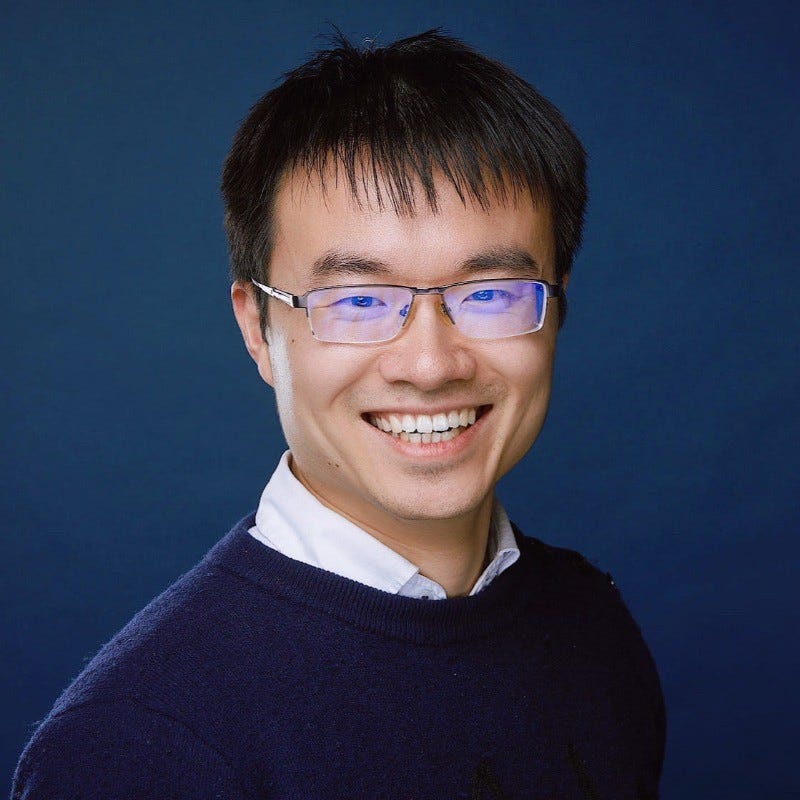
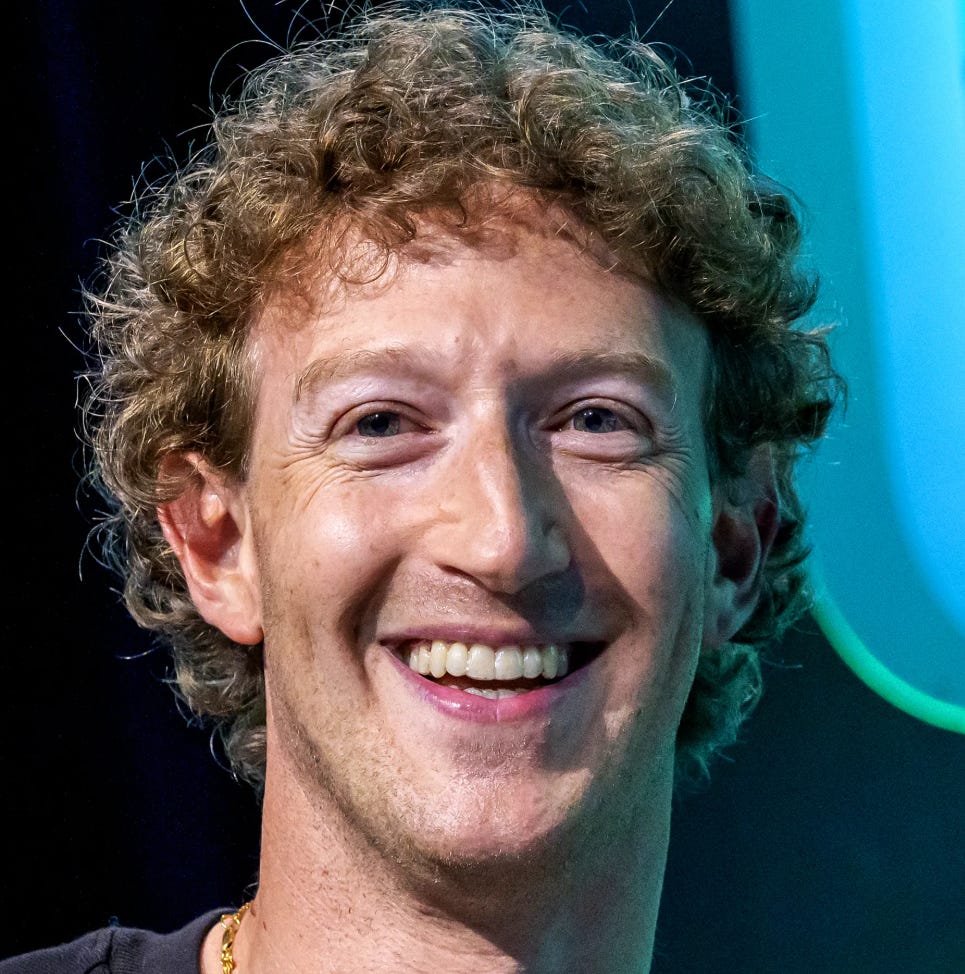

"as if someone has broken into our home and stolen something"
Well, if they treat people as property that can be stolen, what else do they expect? 🤷🏻
OpenAI also later poached from Apple too - Ruoming Pang, the person in charge of Apple’s foundation models team.